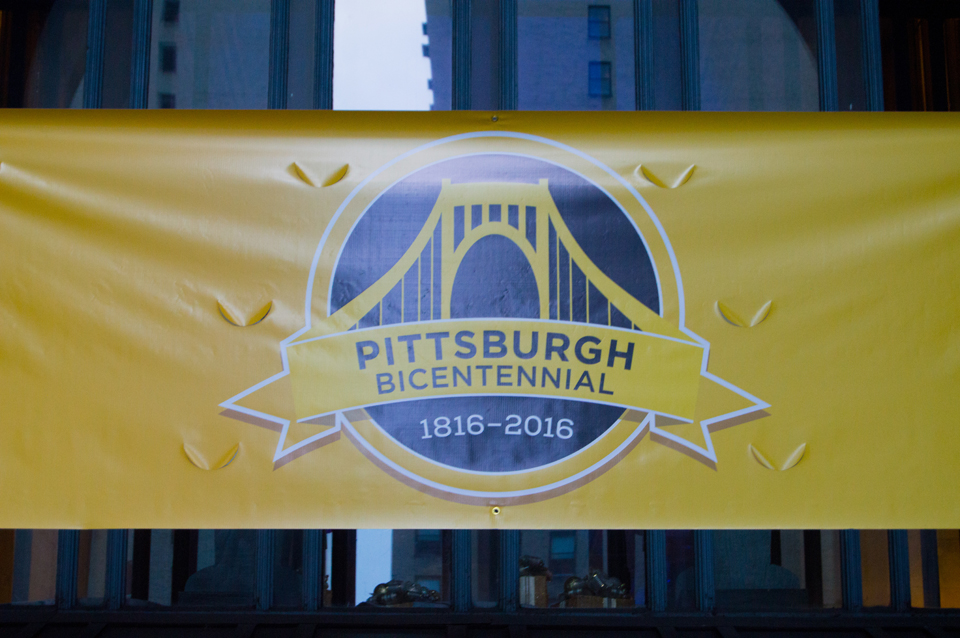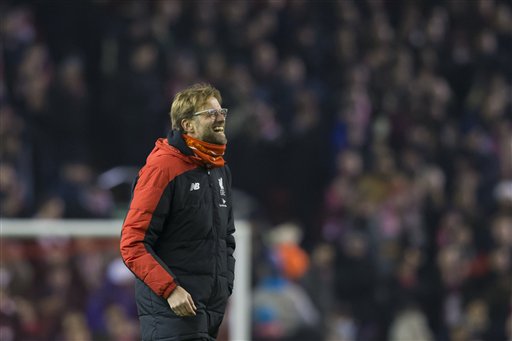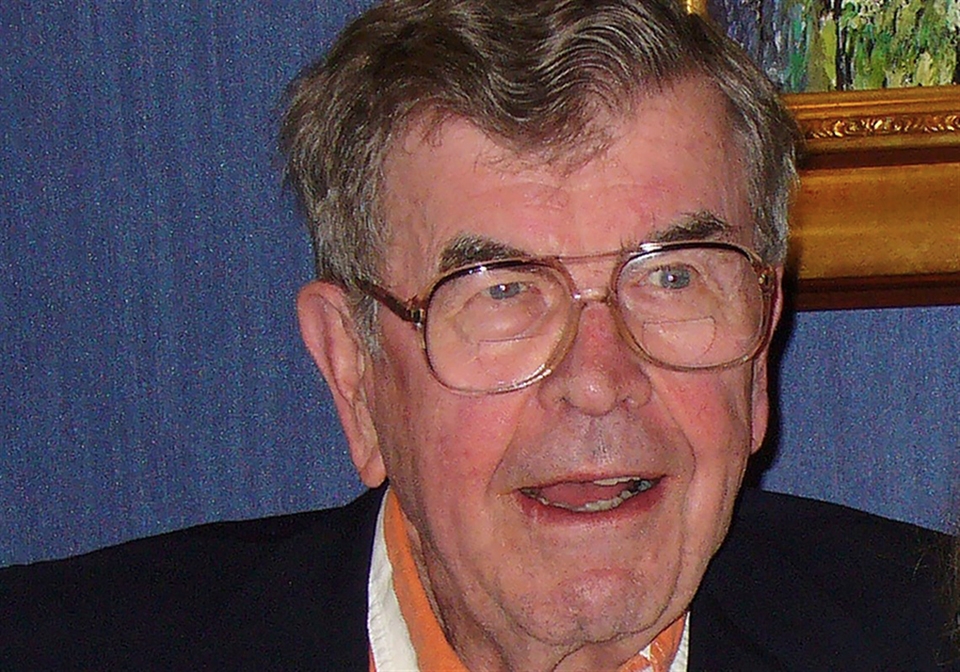

A banner hanging downtown draws attention to Pittsburgh’s bicentennial celebration. The city has several events planned for 2016 to commemorate the founding.
By Sydnie Pennington | The Duquesne Duke
Everyone knows the story of Pittsburgh’s great transformation: Once America’s grittiest steel town, it is now a hub of innovation and culture.
But what Pittsburghers don’t know is that their city’s history dates back 200 years, far before there was cole slaw on sandwiches, six Super Bowl wins for the Steelers or Andy Warhol’s iconic pop art.
Marking Pittsburgh’s 200th anniversary, the city is planning several events throughout 2016 to celebrate its bicentennial.
In honor of the city’s changing landscape, there will be an official celebration in March in the City County Building. There will also be a parade in July honoring Pittsburgh’s past, present and future.
While working with a limited budget, Mayor Bill Peduto’s office will work to include the bicentennial in food festivals and other community events that take place throughout the year.
According to Duquesne history professor Matthew Hyland, Pittsburgh’s incorporation as a city followed its participation in the War of 1812.
“The War of 1812 was a prominent moment in Pittsburgh’s history, because it put Pittsburgh on the map as a supply center, making the war a sort of catalyst to the creation of the city as a city,” Hyland said.
Duquesne archivist Tom White said 1816 Pittsburgh was “a rough town, but it was seen as the gateway to the West, which helped industry evolve here.”
When the city celebrated its centennial in 1916 by building the City-County Building in Downtown, the city was the backbone of America.
“There would have been an emphasis on Pittsburgh being the city building the world [in 1916],” Duquesne archivist Thomas White said.
White said this in reference to Pittsburgh’s expansive industry, specifically in steel. Hyland said the steel industry left in the 1970s and 1980s.
“When the steel industry left, so did many people,” he said. “And with people leaving, comes new people coming in. New innovators.”
White said a big similarity between 1816 and today is that Pittsburgh is still a “cutting edge city.”
“Pittsburgh shifted from building the Western world, literally with steel, to becoming a hub for medical and intellectual advancement,” White said.
Hyland said Pittsburgh still has the “true pioneer’s spirit” it had 200 years ago.
“Businesses and people come to the city to take advantage of the potential for prosperity,” Hyland said.




